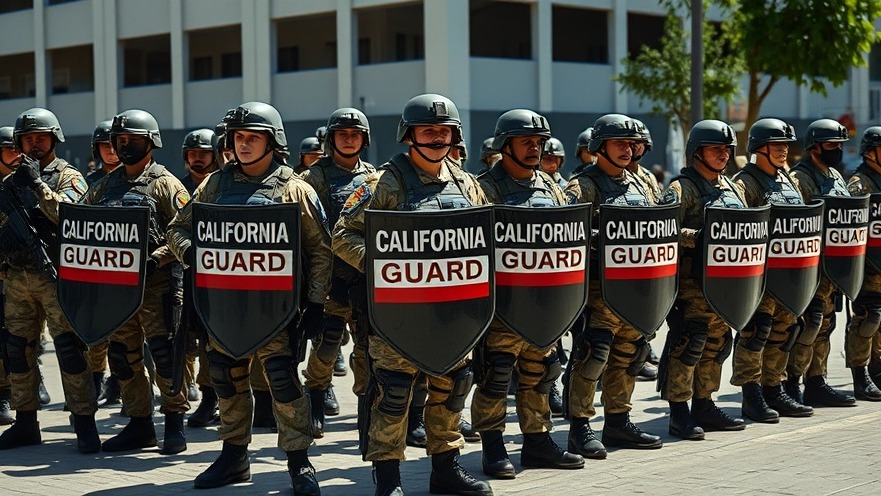
Judge's Ruling Sparks Controversy Over Military's Role
In a decisive ruling, Judge Charles R. Breyer of the Federal District Court in San Francisco declared that President Trump's deployment of National Guard troops in California was illegal. The decision revealed a critical legal misunderstanding regarding the limits on using the military for domestic law enforcement. With nearly 5,000 armed personnel initially dispatched to Los Angeles amid immigration protests, the ruling has stirred significant debate about the boundaries of federal authority and the implications for civil liberties.
The Military's Domestic Role: Historical Context
The historical context of using military forces for domestic issues stretches back to the Posse Comitatus Act of 1878, which prohibits the military from acting as a police force. The late 1800s legislation was established to protect citizens’ rights and limit governmental overreach. Judge Breyer's ruling reaffirms these principles, stating that Trump’s use of the National Guard in an ostensibly law enforcement role contradicts century-old laws meant to uphold public safety without military intervention.
Reactions from Various Political Spheres
The ruling has incited a flurry of responses from political leaders on both sides of the aisle. While some Democrats champion the decision as a victory for constitutional safeguards, others in the Republican Party view it as an infringement on the executive branch's right to maintain order during nationwide protests. The debate highlights the ongoing tension between federal authority and state rights, particularly in hot-button areas like immigration enforcement.
Future Implications: Military and Law Enforcement Relations
As the Trump administration considers appealing the ruling, the outcome may set an important precedent for how the military can be used in domestic operations. Legal experts warn that an unsuccessful appeal could constrain future presidential administrations’ ability to mobilize the National Guard or military personnel during emergencies. Furthermore, this case could ignite broader discussions concerning police reform and the militarization of law enforcement across the United States.
Public Safety and Community Relationships
Community relationships suffer when military presence overshadows local law enforcement. Judge Breyer pointed out that while some protests in Los Angeles witnessed violence, there was no imminent rebellion requiring military force. This perspective resonates in communities nationwide where citizens frequently question police militarization and the necessity of armed troops in civil protests. Building genuine trust between communities and local law enforcement hinges on critical conversations about the role of the military in civilian life.
The Broader Context of Immigration and Law Enforcement
This ruling has implications that extend beyond California. Immigration policies and their enforcement remain contentious topics that can polarize national discourse. The deployment of armed forces in response to civilian issues often evokes fears of authoritarianism, complicating immigration reform discussions. Maintaining a balance between enforcing laws and respecting civil liberties is critical as the U.S. navigates the complexities of immigration in a transformative era.
What Citizens Need to Know About Their Rights
Citizens must remain informed about their rights during civil unrest, especially as conflicts around law enforcement and military involvement evolve. Understanding the legal boundaries surrounding military deployment offers a crucial layer of protection for Americans’ freedoms during protests or public demonstrations. Engaging with local representatives and demanding accountability from elected officials about the use of military power can empower communities to advocate for their rights.
Call to Action: Engage in Civic Discourse
As this case unfolds and the political landscape shifts, it's vital for citizens to actively engage in discussions about the role of law enforcement and military presence in their communities. Ensuring that your voice is heard can influence legislative developments and foster a more equitable approach to governance and justice. Participate in local town hall meetings, write to your representatives, or join community forums to advocate for transparency and accountability. Making informed decisions and voicing your perspective on these crucial issues is more important than ever.
 Add Element
Add Element  Add Row
Add Row 



Write A Comment